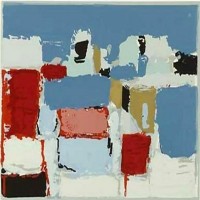The Yale Review

What the oldest literary review in America is now publishing is the motive for this brief note on brief poems. Founded in 1819, the Yale Review is today under the editorship of the poet and literary critic J.D. McClatchy. It aims to give its distinguished authority to ‘bold established writers and promising newcomers, to both challenging literary work and a range of essays and reviews that can explore the connections between academic disciplines and the broader movements in American society, thought, and culture.’
Because back issues give only a contents listing of contributors (though many are well known) I can only comment on the current edition, which provides a reasonable selection of its poetry. Speculation and elegance (to again quote the quarterly’s aims) are prominent in the five pieces I present here. All are modest in intention and muted in tone. The first (Here Comes the Bride by Heather Dubrow) draws parallels between a construction site and the work in progress that represents a marriage. It can be read at: http://www.yale.edu/yalereview/backissues/features/1021dubrow.html
Warning: scaffolding is alarmed
The poem makes the usual points:
the wedding scrapbook lies through its teeth
about yesterday and tomorrow
Refutes the wedding vows:
I do
I will
I never will
again
And warns:
HARD HAT AREA
REPORT UNSAFE CONDITIONS TO
No One Can Stand Up for Him by Geoffrey Hartman (http://www.yale.edu/yalereview/backissues/features/1021hartman.html)
is a tribute (of sorts) to the poet John Hollander. It ‘s a rather broken-backed affair, building up rapidly to a large statement:
or it got hold of him
beginning ever so softly
then a rising that could hardly go higher
or faster,
breaking the speed-limit
of our understanding.
Remarking on his personal qualities:
But why, with me, did his voice remain soft
was I more vulnerable than I knew?
Which is then turned into brief pathos:
he greeted me, softly as ever,
with no words except:
Geoffrey, I can’t write any more.
That simplicity, not to say minimalism, is again seen in Chiaraviglio by Karl Kirchwey (
http://www.yale.edu/yalereview/backissues/features/1021kirchwey1.html) The poem opens with:
Three green birds sit
in a green tree
in the month of January.
Each has chewed the crown
out of an orange
and leisurely
We learn a little of their activities and then there’s a reference to Kubla Khan:
these do not care,
for like the phoenix-bird
that rides the palm of Paradise
in a mosaicked vault,
long-tailed they have drunk
the juice of paradise,
After which they take off, leaving us little the wiser:
leaving these broken lamps
aloft upon the dusk.
What id Lethe by John Allman (
http://www.yale.edu/yalereview/backissues/features/1021allman.html)
adds a note of mystery, mostly through negatives, i.e. what is not being said, the Lethe of forgetfulness. We start with what metaphysicians would call ‘pure apprehension’, a song or sound we don’t quite hear:
its song unhearable, though it’s there, because
nothing is not unbusy-the slack in a smile, the silence
that whistles day and night in the ear,
Which is like the twitter of wrens, whose lives and nests are precarious, as indeed what we say is:
your words the empty space the breath blows
through, and here, right here, an awareness of scented
light, a pool of events that will happen where nothing
can be explained.
With Anne Frank by Ralph Angel (
http://www.yale.edu/yalereview/backissues/features/1021angel.html) we are on firmer ground. Or possibly not. The poem starts innocuously with:
The function of the door is to protect us.
And then presents short observations about the earth and buildings. That matter of fact tone returns to Anne Frank:
The child does not understand how to please the mother or the father.
Then more observation:
From my room, I see the whole graveyard.
After which, unfortunately, the content is too large for the simple words, and we fall into generalizations:
My mind is empty. My heart a sweet earthy smell. My mind is listening for voices
that might heal your hardships and calm your fears.
I start small. I start with the idea of freedom.
